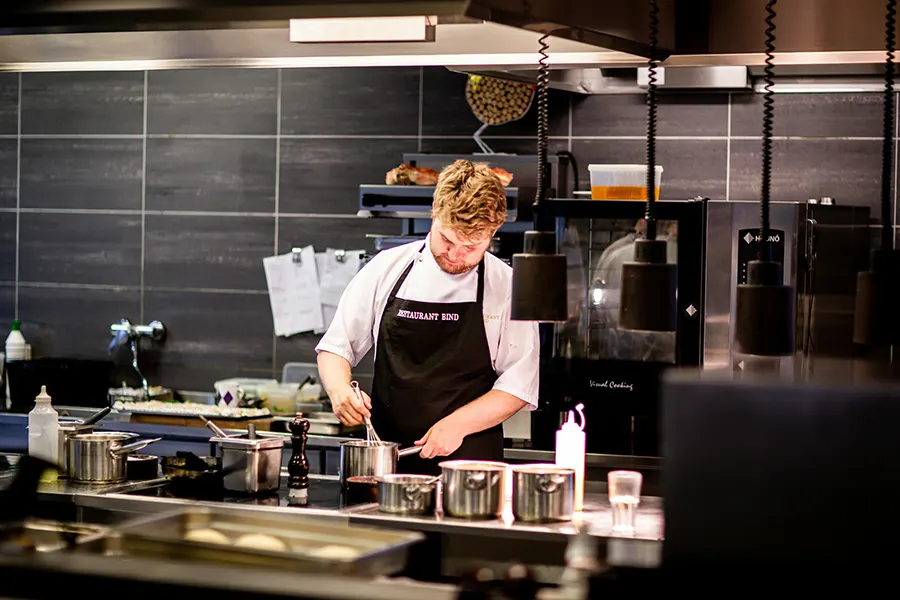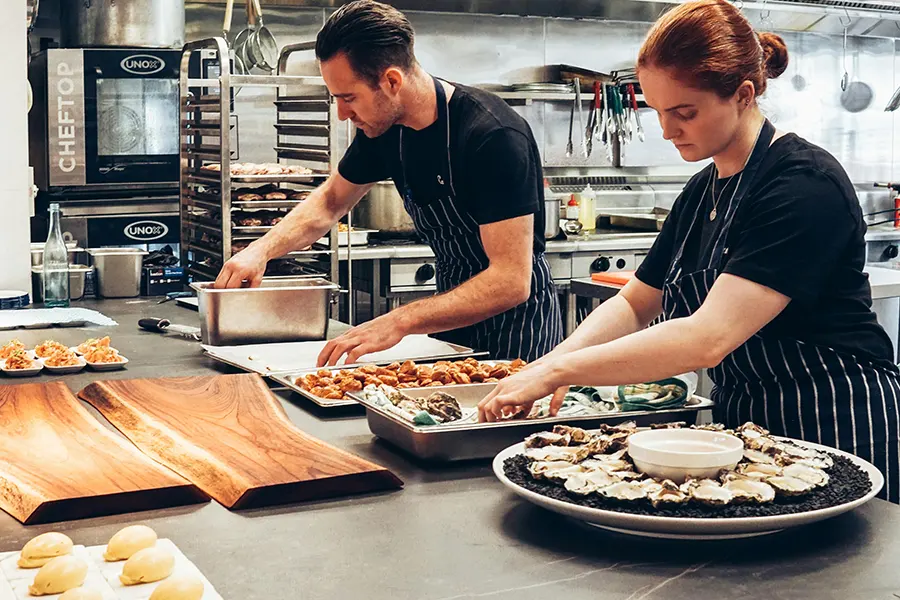The cleanliness of a commercial kitchen is at the forefront of ensuring food safety, maintaining health standards, and creating a positive environment for customers and staff. From busy restaurant kitchens to hospital cafeterias, maintaining a pristine workspace is a multifaceted challenge that requires the right tools and techniques. In this guide, we will explore the different types of commercial kitchen cleaning agents available, how to select the right one for your needs, and best practices for effective kitchen cleaning and maintenance.
Commercial Kitchen Cleaning Agents Types
Degreasers
Degreasers are critical for breaking down stubborn grease and grime build-up on kitchen surfaces and equipment. There are different types of degreasers, including:
- Solvent-based degreasers that work quickly but must be handled with care.
- Caustic degreasers for cutting through heavy deposits found on ovens, grills, and hoods.
- Enzyme-based degreasers which use biological enzymes to break down organic grease.
Each type is suited to specific tasks, and hazardous chemical degreasers should be used with appropriate protective equipment and care.
Sanitizers and Disinfectants
Sanitizers and disinfectants are used to kill harmful bacteria and pathogens. They are essential for food contact surfaces, such as cutting boards, counters, and dishware, as well as appliances. There is a distinction between sanitizers, which reduce the number of pathogens to a safe level, and disinfectants, which kill almost all germs.
- Quaternary ammonium compounds (quats) are commonly used as sanitizers.
- Bleach solutions are powerful disinfectants but should be handled with caution and diluted according to regulations to avoid damage and harm.
Descalers
Descalers are used to remove mineral deposits such as limescale from equipment like coffee makers and dishwashers. They help maintain equipment performance and can increase the lifespan of appliances. Mild acids like citric acid or acetic acid (vinegar) are used for descaling tasks.
All-Purpose Cleaners
All-purpose cleaners are versatile solutions that can be used on a variety of surfaces and can accommodate mild cleaning tasks. They are convenient for daily or general cleaning but may not be as effective for specialized needs.
Stainless Steel Cleaners
These are specialized cleaners formulated to protect and shine stainless steel surfaces. They typically contain oils to leave a protective layer that resists fingerprinting and helps prevent future build-up.
Selecting the Right Commercial Kitchen Cleaning Agents for You
When choosing cleaning agents, several factors should be considered to ensure safe and effective cleaning.
Surface Compatibility
Not all cleaners are safe for all surfaces. Aluminum, for instance, can be damaged by caustic cleaners. Always consider the material and the manufacturer’s recommendations before selecting a product.
Cleaning Power
The level of cleaning required will dictate the strength of the cleaning agent. Heavy-duty products may be necessary for deep cleaning, while lighter formulations are suitable for daily maintenance.
Environmental Impact
With a growing emphasis on sustainability, it’s important to choose environmentally friendly products.
Regulatory Compliance
Ensure that the cleaning agents you use comply with local health and safety regulations. The regulation usually includes the approval or designation of specific products for commercial kitchen use.
Best Practices for Using Commercial Kitchen Cleaning Agents
Safety First
Always read and follow the manufacturer’s instructions for the safe use of cleaning agents. Provide the appropriate training and safety equipment for your staff.
Precautions for Chemical Handling
Some chemicals, like concentrated degreasers and disinfectants, may require protective gear such as gloves, eye protection, and appropriate ventilation.
Dilution Control Systems
Invest in dilution control systems to ensure proper mixing of concentrated cleaning agents. This not only provides accuracy but also minimizes waste and ensures the effectiveness of the solution.
Storage and Labeling
Store your cleaning agents properly and according to their specifications. Always label secondary containers when transferring solutions to avoid confusion and accidents.
Regular Equipment Inspections
Inspect your cleaning equipment and storage areas regularly for safety and maintenance. Leaks or damaged tools can pose a danger to the user and compromise the effectiveness of the cleaning process.
Importance of Regular Maintenance and Professional Kitchen Cleaning Services
A proper cleaning and maintenance routine is essential in commercial kitchens. It helps prevent unnecessary wear and tear on equipment, maintains a clean and hygienic environment, and can prevent the need for more drastic measures like deep cleaning or equipment replacement.
Daily Cleaning Routines
Daily cleaning routines should involve cleaning and sanitizing food contact surfaces, sweeping, mopping floors, and wiping down equipment. These activities are essential in preventing cross-contamination and daily buildup of grime and food particles.
Weekly and Monthly Cleaning Tasks
In addition to daily routines, weekly and monthly cleaning tasks should not be neglected. Services such as disassembling and deep cleaning ovens, descaling steam tables, and cleaning vents and hood systems are critical for maintaining a sanitary kitchen environment.
Professional Commercial Kitchen Cleaning Services
Engaging professional cleaning services can be a cost-effective way to manage more in-depth cleaning tasks. These professionals have the expertise and equipment needed to perform deep cleaning and maintenance, ensuring that your kitchen is always up to the highest standards.
Commercial Kitchen Cleaning Conclusion
The importance of a well-maintained and clean commercial kitchen can’t be overstated. Not only does it ensure food safety, but it also contributes to the longevity of your equipment, maintains a pleasant work environment, and uplifts the image of your establishment. By understanding the range of cleaning agents available and following best practices, you can keep your kitchen spotless and your patrons satisfied.
Implementing a consistent cleaning regimen tailored to the unique needs of your kitchen is vital. Whether you manage a bustling restaurant or a school cafeteria, commit to using the right cleaning agents, adhering to safety precautions, and considering professional services when needed. By doing so, you invest in the health of your customers and the trust in your brand.
If you’re unsure about the best cleaning approach for your specific kitchen or need assistance with professional cleaning services, don’t hesitate to reach out for expert advice. The investment in cleanliness is an investment in your business’s success.




